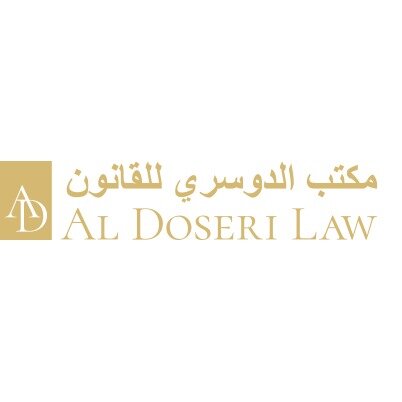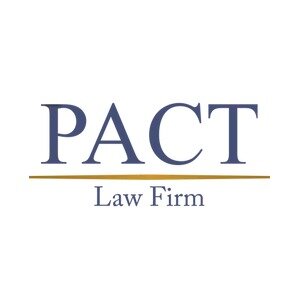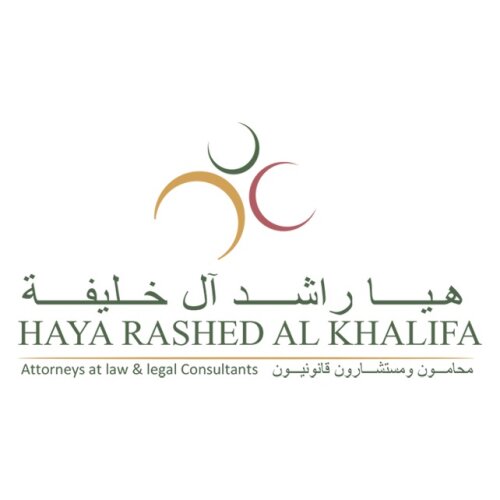Best Foreclosure Lawyers in Bahrain
Share your needs with us, get contacted by law firms.
Free. Takes 2 min.
Free Guide to Hiring a Real Estate Lawyer
Or refine your search by selecting a city:
List of the best lawyers in Bahrain
About Foreclosure Law in Bahrain
In Bahrain, foreclosure refers to the legal process by which a lender attempts to recover the balance of a loan from a borrower who is no longer making payments. This is done through the sale of the asset used as the collateral for the loan, typically a property. The procedures and rights related to foreclosure are usually detailed in the mortgage agreement, and it's crucial for property owners and mortgage holders to understand the legal framework surrounding foreclosures in the Kingdom. Bahrain's legal system has specific rules governing foreclosure proceedings, ensuring both the lender's and the borrower's rights are protected under the law.
Why You May Need a Lawyer
Engaging a lawyer for foreclosure matters in Bahrain is often essential due to several reasons. Firstly, understanding the intricate legal documentation and proceedings can be quite challenging for someone without a legal background. Secondly, a lawyer can provide crucial assistance in negotiating with lenders, potentially finding alternatives to foreclosure such as loan modification or short sale. Additionally, if illegal practices or unfair treatment occur during foreclosure proceedings, legal counsel can help protect the homeowner's rights. Lastly, foreclosures often involve significant financial stakes, making expert guidance invaluable in navigating the process while minimizing financial losses.
Local Laws Overview
The legal framework governing foreclosures in Bahrain is heavily influenced by both local laws and Islamic financing principles. Some of the key aspects include:
- Mortgage Contracts: Agreements that outline obligations and rights of both parties, detailing what constitutes default and the consequent steps.
- Court Involvement: Foreclosure actions often require court intervention in Bahrain, ensuring the process is conducted fairly and transparently.
- Debtor Protections: Bahraini law includes certain protections for borrowers, such as notification periods and rights to contest the foreclosure.
- Resolution Alternatives: The law encourages alternative dispute resolution and settlement discussions between the borrower and lender before proceeding with foreclosure.
- Sale Process: If foreclosure proceeds, the property is generally sold through a public auction, with specific procedures to ensure fairness and transparency.
Frequently Asked Questions
What is the first step in a foreclosure process in Bahrain?
The initial step usually involves the lender issuing a formal notice of default to the borrower, stating that they have fallen behind on their mortgage payments.
Can foreclosure be avoided in Bahrain?
Yes, foreclosure can often be avoided by negotiating with the lender for payment restructuring, settlement, or mediation to resolve outstanding debts.
How long does the foreclosure process take?
The duration varies but can range from several months to a year or more, depending on the complexity of the case and court schedules.
Are foreclosure proceedings public in Bahrain?
Yes, foreclosure proceedings are generally public, and details about the proceedings can be accessed through the appropriate legal channels.
Can I represent myself in a foreclosure case?
While self-representation is possible, it is not advisable due to the complex nature of foreclosure proceedings and the potential financial implications.
What are my options if I am facing foreclosure in Bahrain?
Options include negotiating with the lender, seeking a legal settlement, selling the property, or in some cases, refinancing the mortgage.
Do all foreclosures involve courtroom proceedings?
While many foreclosures in Bahrain may involve court proceedings, alternatives such as mediation and negotiations can sometimes avoid this step.
What happens to my property if it goes to auction?
If a property is foreclosed and goes to auction, it will be sold to the highest bidder, and the proceeds will be used to pay off the outstanding mortgage debt.
Can I redeem my property after foreclosure?
Generally, once a property is sold at auction, the right to redeem is extinguished, though specific legal conditions may vary.
Will foreclosure affect my credit in Bahrain?
Yes, foreclosure can negatively impact your credit report and standing, which could affect future borrowing capabilities.
Additional Resources
For those seeking further information on foreclosure, several resources and organizations can be of assistance:
- Ministry of Justice, Islamic Affairs and Endowments: Offers details on the legal process and court systems related to foreclosure.
- Bahrain Central Bank: Provides regulations related to mortgages and financial obligations in the Kingdom.
- Legal Aid Clinics: Available through various nonprofit organizations to offer free or reduced-cost legal assistance for those in financial need.
- Real Estate Regulatory Authority (RERA): An important body that oversees real estate transactions, ensuring compliance and offering guidance.
Next Steps
If you need legal assistance regarding foreclosure in Bahrain, it is recommended to:
- Consult a Lawyer: Reach out to a lawyer specializing in real estate law to understand your position and options.
- Gather Documentation: Collect all relevant documents such as mortgage agreements, payment records, and any correspondence with your lender.
- Assess Your Finances: Understand your financial capabilities and constraints to better discuss terms with the lender or legal representative.
- Engage in Discussions: Approach your lender to discuss possible alternatives to foreclosure, potentially with your lawyer's participation.
- Stay Informed: Keep informed about changes and updates in foreclosure laws and procedures to make well-informed decisions.
Lawzana helps you find the best lawyers and law firms in Bahrain through a curated and pre-screened list of qualified legal professionals. Our platform offers rankings and detailed profiles of attorneys and law firms, allowing you to compare based on practice areas, including Foreclosure, experience, and client feedback.
Each profile includes a description of the firm's areas of practice, client reviews, team members and partners, year of establishment, spoken languages, office locations, contact information, social media presence, and any published articles or resources. Most firms on our platform speak English and are experienced in both local and international legal matters.
Get a quote from top-rated law firms in Bahrain — quickly, securely, and without unnecessary hassle.
Disclaimer:
The information provided on this page is for general informational purposes only and does not constitute legal advice. While we strive to ensure the accuracy and relevance of the content, legal information may change over time, and interpretations of the law can vary. You should always consult with a qualified legal professional for advice specific to your situation.
We disclaim all liability for actions taken or not taken based on the content of this page. If you believe any information is incorrect or outdated, please contact us, and we will review and update it where appropriate.
Browse foreclosure law firms by city in Bahrain
Refine your search by selecting a city.















